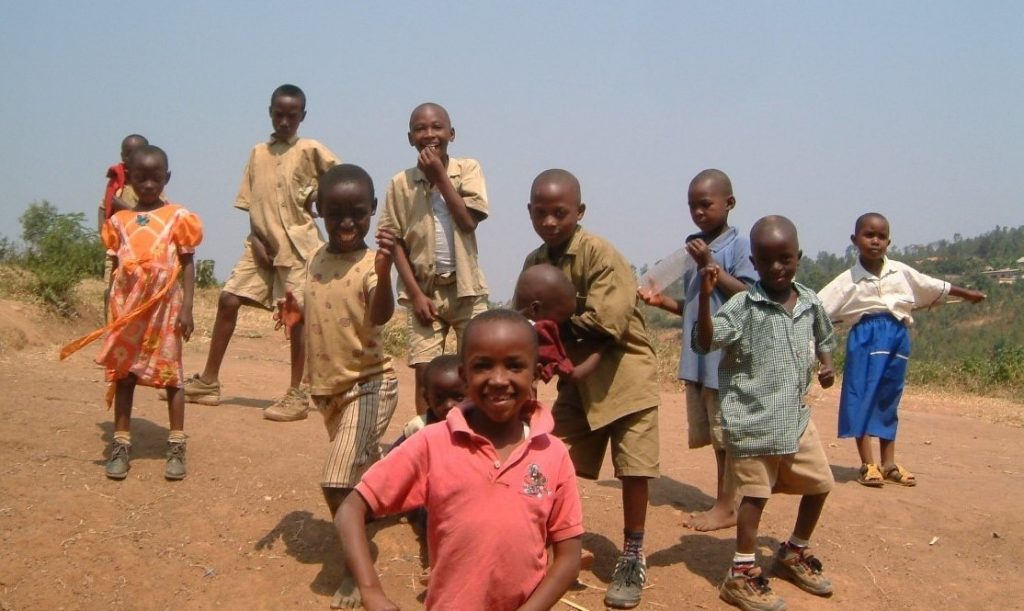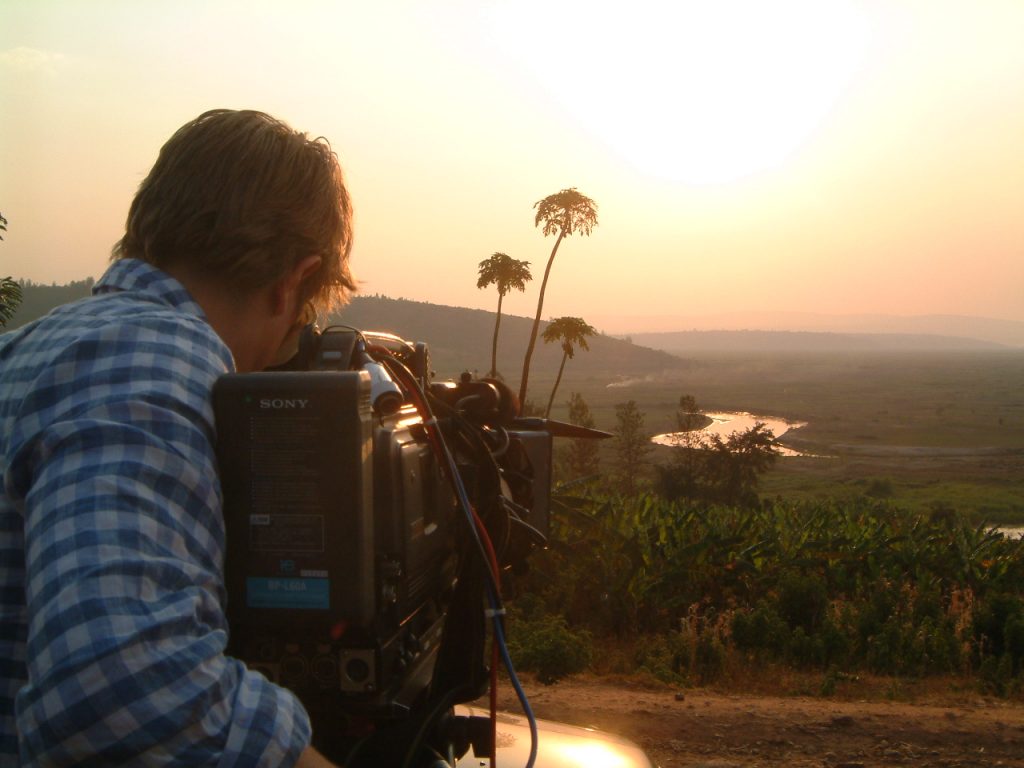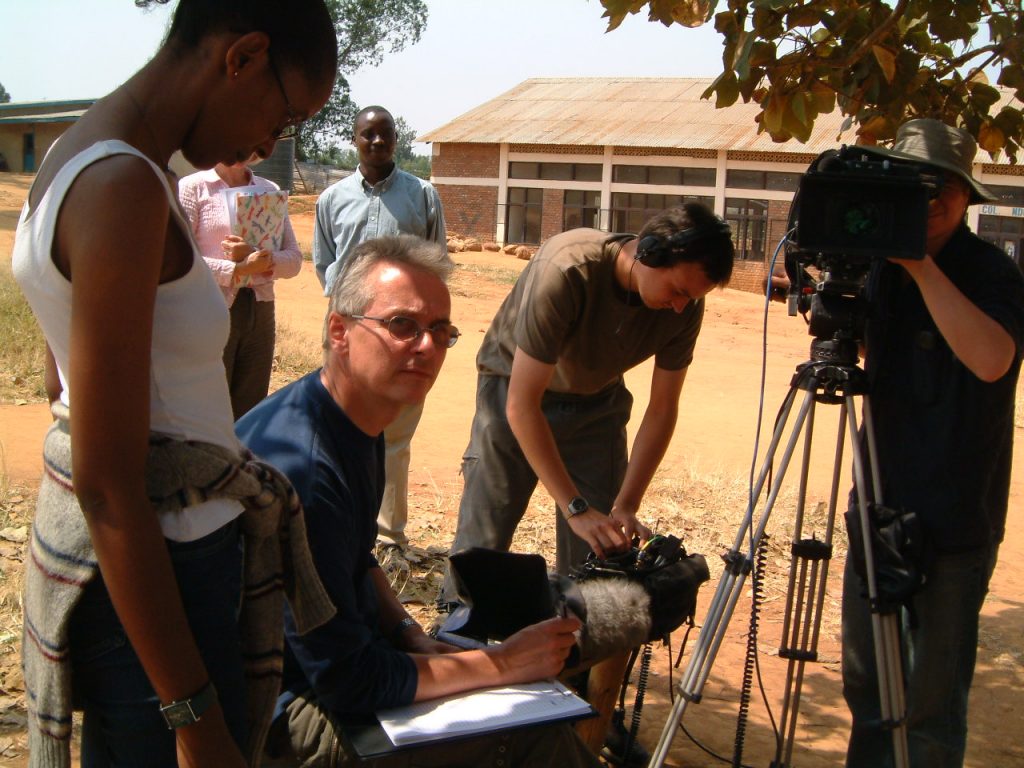“When you have HIV/AIDS where you live in the world is everything.”
CHILD set out to be a truthful, contemporary snapshot of the lives of young people affected by HIV/AIDS in Rwanda and Britain in 2004.
To help young people in the UK understand the unique HIV/AIDS situation in Rwanda, CHILD touched upon something of its history. In 1994, within the space of 100 days, 1 million Tutsis and moderate Hutus were murdered in a terrible act of genocide, ordered by the extremist Hutu government then in power.
This dealt a devastating double blow to Rwanda (population 8.4 million), due to the fact that large numbers of soldiers involved, many of whom were HIV positive, went on to rape surviving women and girls thus exacerbating the country’s already critical rate of HIV/AIDS.
After this brief introduction to the events of 1994, CHILD illustrates the reality of life, ten years on in 2004, for the thousands of children and young people in Rwanda affected by HIV/AIDS, many living in child-headed households and coping in circumstances of extreme hardship.
These are young people with dreams, aspirations and the desire to enjoy life to the full just as their counterparts in the UK, but live extraordinary lives, surmounting terrible situations with bravery, humour and, above all youthful spirit.
On the other hand, staying true to its premise, “When you have HIV/AIDS where you live in the world is everything”, CHILD attempts to dispel many peoples’ misconceptions that HIV/AIDS affected young people in the UK are fortunate to be living in such a liberal, medically-advanced and affluent society. Contrary to this belief, CHILD asks the question, “Is life for a teenager in Britain in 2004 in some ways more challenging than for his or her Rwandan counterpart?”And is the stigma in the UK so great, that in the main these youngsters have to lead double lives, unable to share with friends, school-mates or family their HIV status or that of their parents or siblings? For often, these young people also have to cope with the loss of one or both parents. And, just as in Rwanda, they deal with this unimaginable situation with stoicism, courage and hope for the future.


